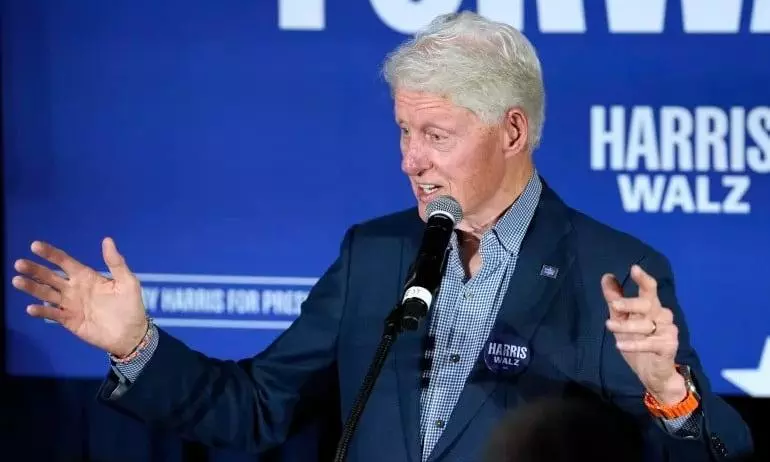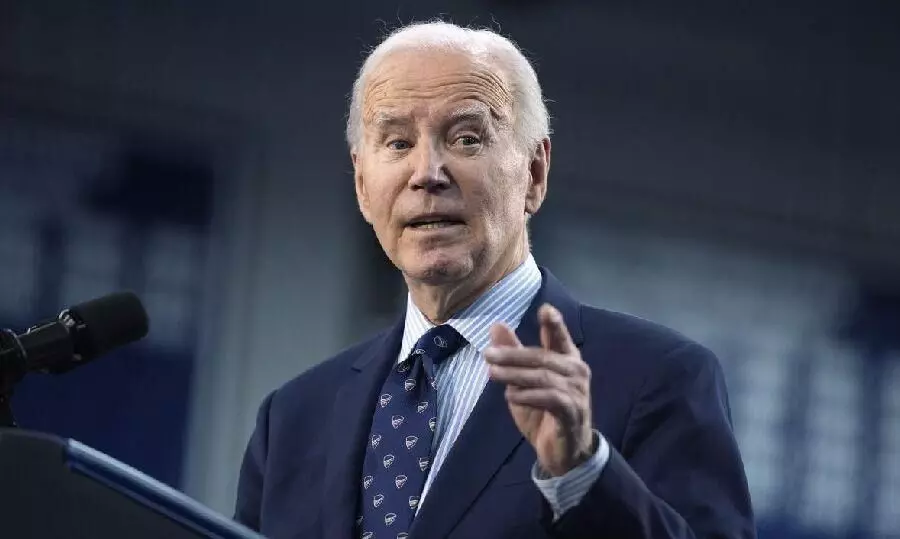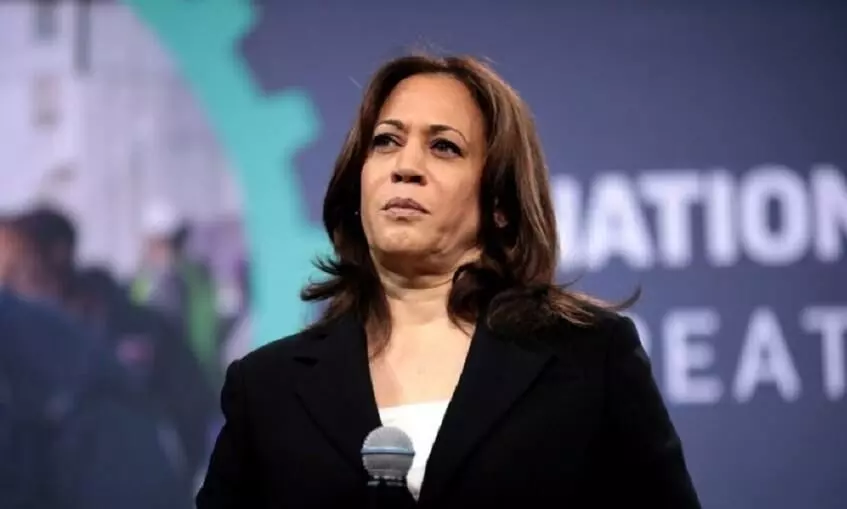
Bill Clinton defends killings in Gaza, claiming it is Holy Land for Israelis before Palestine
text_fieldsSuggesting the Israeli war in Gaza is more religious than the Palestinians' right to live in their birthland, former U.S. President Bill Clinton defended Israel's killing of innocent civilians, claiming Israel has no option but to kill them to claim the Holy Land, which was there first before the Palestinians.
Clinton made this divisive, polemical claim during a campaign for Democratic presidential candidate Kamala Harris in Michigan, which has a significant population of Arab and Muslim voters, igniting controversy among Arab and Muslim Americans, Al Jazeera reported.
Clinton not only claimed that the Israelis were the first claimant of the land, describing it as a Holy Land even before the Palestinians' faith existed, but also suggested that Israel was forced to kill civilians.
Clinton’s remarks come amid intensified scrutiny of the Democratic Party’s stance on the Gaza conflict, where Israeli forces have reportedly caused high civilian casualties, including thousands of women and children, prompting accusations of “crimes against humanity” by a United Nations commission.
His comments were perceived by many as dismissive of these humanitarian concerns and indicative of the party’s unyielding support for Israel, which has resulted in disillusionment among traditionally Democratic Arab American voters.
This sentiment has been further exacerbated by President Joe Biden and Harris’s alignment with Israel, even as escalating violence has led to widespread criticism and legal challenges at the International Court of Justice, and despite its Presidential candidate Kamala Harris' occasional expressions of sympathy for the suffering in Gaza.
Leaders within Michigan’s Arab and Muslim communities, including those from Dearborn—the U.S.'s first Arab-majority city—have expressed frustration with the Democratic Party's handling of the Gaza situation.
The mayor of Dearborn voiced concerns that Clinton’s remarks are further alienating voters, highlighting a growing divide as the election nears. Many community members, who have historically voted for Democratic candidates, are now reconsidering their support due to the party’s messaging and perceived insensitivity toward Arab and Muslim perspectives on Middle Eastern conflicts.
Further fuelling discontent, Clinton’s assertion of Israel’s primacy in the region has stirred additional debate over longstanding issues of Palestinian displacement. By omitting reference to the 1948 displacement of Palestinians that occurred with the founding of Israel, Clinton has reignited grievances over historical narratives that many feel ignore the lived realities of Palestinian communities.
The remarks have drawn condemnation from Arab American advocates who interpret Clinton’s position as an outdated, one-sided perspective that fails to acknowledge the historical complexities of the region.
Some Arab American political commentators and analysts believe the Democrats are misjudging the concerns of pro-Palestinian progressives and Muslim voters, who view the current administration’s approach to Israel as one that prioritizes maintaining traditional alliances over confronting humanitarian concerns.
This perception is compounded by a recent polling that indicates a shift among Arab American voters toward Republican candidate Donald Trump, suggesting that many in this demographic feel the Democratic Party is not adequately addressing their perspectives on foreign policy. In other words, their support for Trump is not because they love Trump more, but because they love Harris less.
The Harris campaign has come under particular scrutiny for its focus on portraying Trump as a threat to U.S. interests rather than taking substantive action regarding Israel’s conflicts in the Middle East.
Local advocates and politicians have expressed disappointment with this approach, viewing it as out of touch with the needs and interests of Arab and Muslim communities. In Dearborn, a predominantly Arab city, figures such as Palestinian American comedian Amer Zahr have criticized the Harris campaign, arguing that its rhetoric fails to resonate with the community.

























